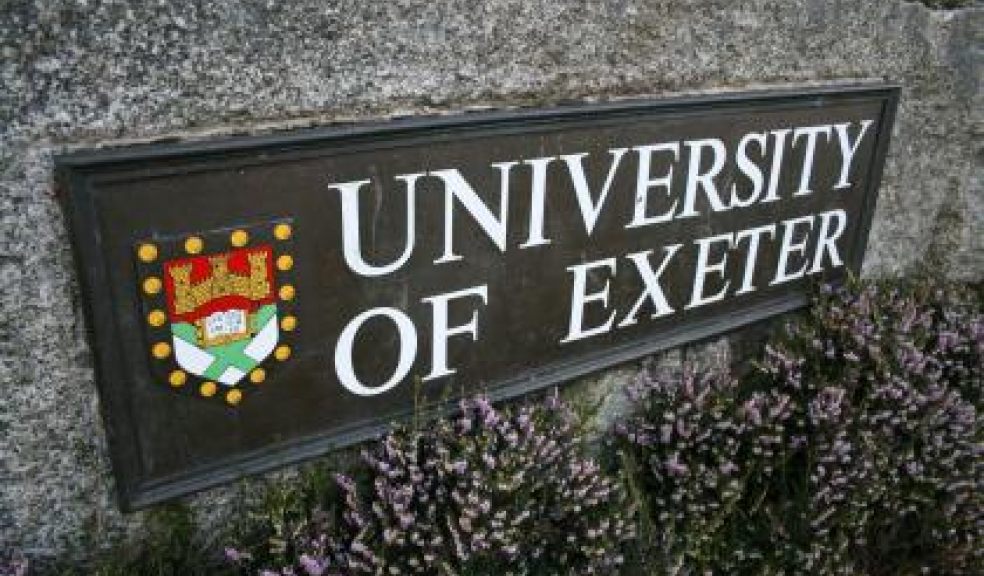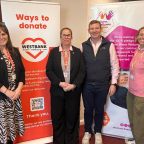
Exeter University receives £2m towards future of science
The University of Exeter has received a £2 million gift from The Wolfson Foundation to support the establishment of a new Living Systems Institute, which will pioneer a new approach to treating the world’s most serious diseases.
The gift is the largest award made by The Wolfson Foundation in 2014 and constitutes the latest milestone in a long history of key contributions from the charity towards the advancement of science at Exeter.
The Living Systems Institute will bring together 200 cell and molecular biologists, mathematicians, physicists, biomedical scientists and engineers to investigate the fundamental cellular processes underlying human and plant disease.
With a state-of-the-art building currently under construction, the £52.5 million project is the largest single investment in science in the history of the University.
Paul Ramsbottom, Chief Executive of The Wolfson Foundation said: “The Wolfson Foundation supports excellence and so we are delighted to make this exceptional grant to the University of Exeter in support of establishing a new Living Systems Institute. The
University of Exeter is fast becoming a scientific power-house, with a major impact on the South-West. In making this award, the Foundation recognises the quality of research, the imaginative approach to understanding diseases and the effective working with local partners, particularly the NHS Trust.”
Professor Sir Steve Smith, University of Exeter Vice-Chancellor and Chief Executive said: “The funding of scientific research in universities is absolutely critical to the future of the UK so that we can continue to attract the brightest minds from around the world. We are looking forward to the opening of the new home for the Living Systems Institute in Autumn 2016 as this will also be an opportunity for The Wolfson Foundation and the University of Exeter to celebrate a fifty year relationship.”
Professor Nicholas Talbot, Deputy Vice-Chancellor Research and Knowledge Transfer added: “The new Living Systems Institute is an unprecedented opportunity for The Wolfson Foundation to invest in the long-term future of science at Exeter and support the creation of world-leading fundamental research in the South West. The application to Wolfson was informed by a group of some of our most talented scientists, led by Professor Gero Steinberg, who deserves special thanks for his contributions to the success of this donation.
We are lucky at Exeter to have such a fantastic group of scientists and mathematicians who are deeply committed to working together in a novel, interdisciplinary way to understand how living cells operate and how diseases occur. It is incredibly exciting.”
The University of Exeter deeply values its relationship with the Wolfson Foundation, which has been a key philanthropic partner in the development of science at Exeter. The Foundation’s support has played a vital role in building scientific excellence at the University and, to date, the University has benefitted from £6.4 million (including this recent gift) investment since 1966 in both capital infrastructure and academic staff.
The University is pioneering a new approach to understanding how diseases develop and how they can be diagnosed more rapidly and accurately. This will inform more effective treatment strategies for some of the most severe diseases facing humanity, such as chronic neurodegenerative diseases – such as Parkinson’s and Alzheimer’s – as well as diseases that threaten food security.
The Living Systems Institute has been designed to foster innovative interdisciplinary research, leading to an integrated team of scientists with complementary expertise. The new building will house complex, sophisticated facilities where a knowledge of ‘living systems’ will be translated into wider diagnostic and treatment applications.
The Wolfson Foundation is an independent charity that awards grants to support and promote excellence in the fields of science & medicine, health & disability, education and the arts & humanities.
For more information visit www.wolfson.org.uk

















